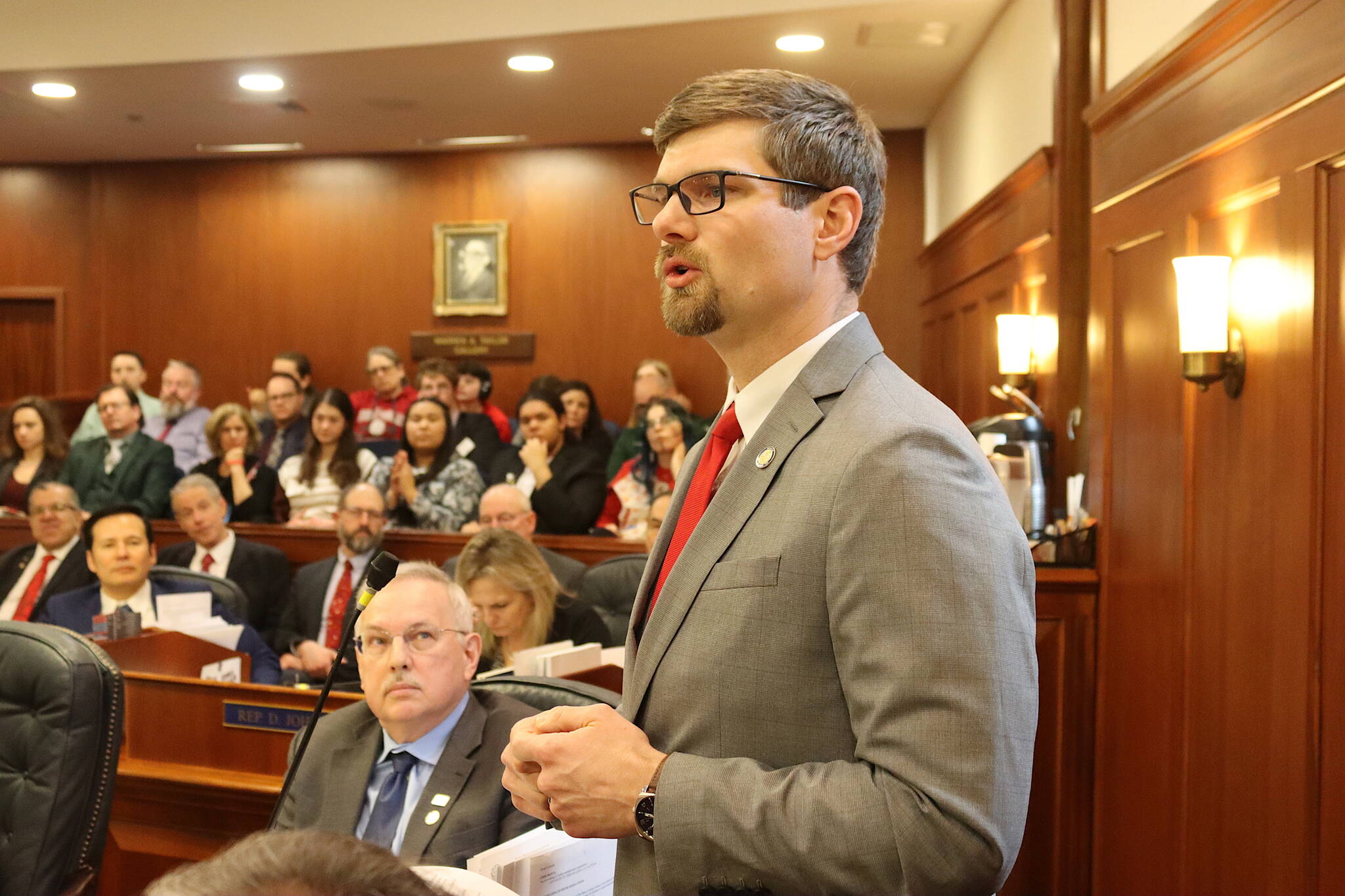In less than a week, the 34th Alaska Legislature will convene for the first time. Sen. Jesse Bjorkman, R-Nikiski, said last week that his priorities this year won’t look much different from those of his freshman legislative session. That is, energy, education, roads and public safety.
“I’m excited about moving forward on issues that are important to the people of the Kenai Peninsula,” he said during a Jan. 9 interview.
Also of interest, Bjorkman said, is examining what can be done to see healthier salmon runs return to Cook Inlet. Bjorkman last session sponsored a bill that would have created a voluntary fishing permit buyback program for Cook Inlet east side setnetters.
Bjorkman said he supports projects that will bring natural gas to from the North Slope generally, though he said details remain to be worked out.
School funding, which has dominated conversations around the Legislature in recent years, will remain a focus. The Legislature last year passed a bill that would have increased the amount of funding each school district receives per student. That bill was vetoed by Gov. Mike Dunleavy and Bjorkman was among the legislators who voted to override the governor’s veto — an effort that fell short by one vote.
Bjorkman said last week that education funding dollars go directly to opportunities for local kids. That includes career and technical education programs that are training students in fields like welding and carpentry.
It’s unrealistic, he said, to expect classroom outcomes to improve without adequate funding.
In the coming session, Bjorkman will again be chairing the Senate Labor and Commerce Committee, and newly chairing the Senate Transportation Committee.
On transportation, Bjorkman said he wants to see greater legislative oversight of State Department of Transportation processes like the State Transportation Improvement Plan, which was rejected by the federal government last year and later given partial approval.
Bjorkman said he wants to see improved maintenance of Kenai Peninsula roads, citing specifically the highways that connect to Anchorage, and said there might be room to modernize and diversify Alaska’s ports — perhaps through greater investment in Seward and Whittier. Those are the ideas Bjorkman said he wants to explore as chair of the transportation committee, “how to deliver dollars for the best outcomes.”
In bills prefiled ahead of the start of the session, Bjorkman sponsored efforts to add add an executive administrator to the Big Game Commercial Services Board; to make certain veterans eligible for a lifetime permit to access state park campsites and parking for free; and to define delivery network couriers like those who work for DoorDash as private contractors who aren’t covered by the Alaska Workers’ Compensation Act.
Bjorkman said last week he’s also looking at legislation affecting the Office of Children’s Services to improve outcomes for foster children and to require the state to financially compensate Alaska hunters for game wrongfully seized by the State Department of Fish and Game. The latter was the subject of a bill introduced by Bjorkman in the last session.
Acknowledging the gridlock that held up issues like education funding last session, Bjorkman said he was prepared to approach issues with a collaborative mindset.
“We need to do things differently and take action that’s going to deliver different results,” he said.
The legislative session starts on Tuesday, Jan. 21.
“I’m feeling good, I’m excited to work with my colleagues together on the things Alaskans care about,” Bjorkman said. “Focus on the things that are going to make a difference.”
For more information, find “Senator Jesse Bjorkman” on Facebook.
Reach reporter Jake Dye at jacob.dye@peninsulaclarion.com.

